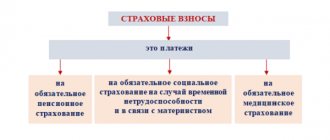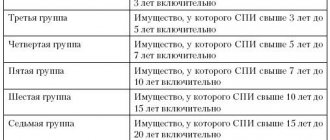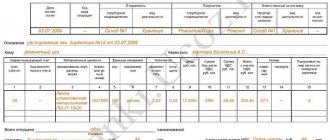List of sales of services not subject to taxation
Benefits on taxes and fees, together with excise taxes , represent certain advantages that can be provided to certain categories of taxpayers. The benefit can be expressed in complete exemption from payment of the prescribed excise , or in payment of a smaller amount.
The list of basic services that will not be subject to taxation mainly includes government services or services provided by third-party organizations that are necessary to ensure the normal functioning of government agencies, local governments, etc.
For example, services for the supply to Russia of critical medical equipment necessary to maintain and improve the existing healthcare system will not be subject to the corresponding taxes and excise taxes.
The list of this equipment and other related sales services in the field of healthcare has been approved by the current tax authorities.
In this case, exemption from taxation, on a par with excise taxes , will occur solely on the basis of a valid certificate, which will contain the established OKP code
Other services may also participate in the tax exemption procedure, the main thing is that this exemption is supported by appropriate grounds and documentary evidence.
exempt from taxation may be included in the taxation system, including excise taxes , if the essence or other important circumstances characterizing these services have changed.
What goods are not subject to excise tax?
Most consumer goods are not subject to excise tax. The Tax Code of the Russian Federation provides a relatively short list of PT.
They are included in this list due to:
- with the importance of limiting the consumption of goods, the use of which may harm human health or the environment;
- preventing the receipt of excessive amounts of profit that are not due to the efficiency of the manufacturer’s activities;
- with the need for state regulation of certain socio-economic processes;
- conditioned by other tax and social government objectives.
List of transactions not subject to taxation
The current tax legislation of the Russian Federation defines transactions that are not subject to taxation in accordance with the existing grounds. This means that the implementation of these operations does not require the taxpayer to pay taxes and fees that were provided for.
Transactions not subject to VAT are expressed as follows:
- import of certain medical goods into the territory of the Russian Federation and their sale , the code of which is included in the current list;
- provision and sale of certain medical services by public clinics or private organizations. The code and list of these services are approved by the current tax legislation of the Russian Federation;
- implementation of patient care services in public and private clinics. In this case, the need for this care must be confirmed by an appropriate conclusion from an authorized health care institution. They are also assigned a code for the required services;
- implementation of services for the support and maintenance of children in special educational institutions, conducting appropriate classes with minor children not only in educational institutions, but also in additional leisure centers - clubs, sections, etc.;
- sale of certain food products that are the result of the activities of canteens in educational and medical institutions, catering organizations, etc.;
- transport services with the appropriate code for regular transportation of passengers by land and other transport, including commuter trains, sea and river vessels;
- sale of funeral services, the code and list of which are determined by the Government of the Russian Federation;
- services directly related to the creation, delivery and sale of coins made of precious metals, which have been recognized as a legitimate and legal form of payment in the Russian Federation;
- implementation of services that relate to the repair and regular maintenance of certain household goods regularly used by citizens, without charging additional fees for these repair actions.
Excise taxes on petroleum products
Object of excise taxation
According to the provisions of Article 182 of the Tax Code of the Russian Federation, transactions recognized as an object of excise taxation include the sale by persons of excisable goods produced by them on the territory of the Russian Federation.
So, excise taxes are imposed on the sale of excisable goods. Let me remind you that sales for the purpose of calculating excise taxes means the transfer of ownership of goods. At the same time, the sale of excisable goods is recognized as an object of excise taxation only if it is carried out by the direct producers of these goods.
In a number of cases, transactions involving the transfer of produced excisable petroleum products are recognized as objects of excise taxation. Unlike the operation of selling goods, there is no change of owner during transfer; however, Article 182 of the Tax Code of the Russian Federation provides for the obligation of direct producers to charge excise tax. These are operations such as:
transfer on the territory of the Russian Federation of excisable goods produced from customer-supplied raw materials to the owner of the specified raw materials or to other persons at the direction of the owner. Thus, in the production of petroleum products from customer-supplied raw materials, the excise tax payer is the processor of these raw materials;
For example, an organization that owns oil has entered into an agreement with an oil refinery to provide services for processing this oil in order to obtain motor gasoline. In this case, the excise tax will be charged by the processor when transferring motor gasoline to the owner or when transferring this gasoline to any person at the direction of the owner.
transfer within the structure of the organization of produced excisable goods for further production of non-excisable goods;
transfer on the territory of the Russian Federation by persons of excisable goods produced by them for their own needs;
For example, if a refinery producing motor gasoline uses part of this gasoline to refuel its own vehicles, then an excise tax should be charged on the volumes of gasoline transferred for these purposes;
transfer on the territory of the Russian Federation of produced excisable goods to the authorized (share) capital of organizations, mutual funds of cooperatives, as well as as a contribution under a simple partnership agreement (agreement on joint activities);
transfer on the territory of the Russian Federation by an organization (business company or partnership) of produced excisable goods to its participant upon his withdrawal (departure) from the organization (business company or partnership), as well as transfer of excisable goods produced under a simple partnership agreement to a participant in the said agreement upon separation his shares from the property that is in common ownership of the parties to the agreement, or the division of such property;
transfer of produced excisable goods for processing on a toll basis.
For example, an organization has produced motor gasoline with an octane number of up to 80 and, on a toll basis, transfers this gasoline to obtain motor gasoline with a higher octane number from it. In this case, the producer of straight-run gasoline will charge an excise tax when transferring gasoline with an octane rating of up to 80 for processing.
As for petroleum products produced outside the territory of the Russian Federation, the object of excise taxation arises when petroleum products are imported into the customs territory of the Russian Federation.
Excise duty on imported petroleum products is paid at customs, with the exception of petroleum products imported from member states of the Customs Union.
As for petroleum products imported from member states of the Customs Union, the following should be kept in mind. In accordance with the Agreement of January 25, 2008 “On the principles of collecting indirect taxes on the export and import of goods, performance of work, provision of services in the Customs Union”, an integral part of which is the Protocol of December 11, 2009 “On the procedure for collecting indirect taxes and the control mechanism for their payment when exporting and importing goods in the Customs Union, excise tax is paid on the volume of petroleum products imported into the Russian Federation, at the place of registration of Russian taxpayers.
According to this Protocol, excise taxes are not paid when excisable goods intended for processing on a toll basis are imported into the territory of the Russian Federation, with the subsequent export of processed products from the territory of the Russian Federation.
For excisable goods produced from customer-supplied raw materials originating from the territory of the Russian Federation, imported into the territory of the Russian Federation from the territories of the member states of the Customs Union, excise duty is paid by persons importing these goods.
For the purpose of calculating excise taxes, paragraph 3 of Article 182 of the Tax Code of the Russian Federation establishes that the receipt of excisable goods by mixing is recognized as a process of production of such goods only if, as a result of mixing, a product is created for which the Tax Code establishes a higher excise tax rate compared to goods used as raw materials.
Consequently, if the excise tax rate on a product obtained as a result of mixing is equal to or lower than the excise tax rate on at least one of the goods used as raw materials, such mixing operations are not recognized as the production of excisable goods (regardless of the change in the volume of excisable petroleum product obtained as a result of mixing ). Accordingly, persons carrying out such transactions are not excise tax payers.
Let's consider situations in which excisable petroleum products are obtained by mixing.
Example. A wholesale oil depot purchased 100 tons of motor gasoline of the Normal-80 brand, which does not correspond to classes 3, or 4, or 5 (excise tax rate - 11,110 rubles), and by mixing this gasoline with a high-octane additive (non-excise product) received 110 tons of gasoline of the Ai brand -92 class 3 (excise tax rate - 10,725 rubles).
In this case, as a result of mixing, an excisable petroleum product was obtained - motor gasoline with an octane number of 92 class 3, the excise tax rate on which is lower than the excise tax on the product used as a raw material (Normal-80 gasoline). Therefore, such blending is not recognized as the production of 92 octane motor gasoline.
Example . A gas station that retails motor gasoline improves the quality of class 3 motor gasoline with an octane number of 95 by mixing the specified gasoline with a detergent additive that does not change its octane number and class.
As a result of adding a detergent additive, which is not an excisable product, to motor gasoline of class 3, the class of motor gasoline and, consequently, the excise tax rate do not change. For purposes of calculating excise taxes, such mixing is not recognized by the production process of motor gasoline. Accordingly, when selling gasoline with an octane number of 95 class 3, obtained by the above method, the object of excise taxation does not arise.
The excise tax rate on straight-run gasoline is higher than both the excise tax rate on gasoline with an octane rating of up to 80 and the excise tax rate on gasoline with other octane ratings. This is done so that the production of motor gasoline from straight-run gasoline becomes economically unprofitable, since the quality of such gasoline cannot be high.
The production of motor gasoline by mixing purchased (or obtained on a toll basis) straight-run gasoline with octane-increasing additives is not recognized as the production of motor gasoline, and in this case there is no right to an excise tax deduction on straight-run gasoline. In this case, the excise tax paid upon the purchase of straight-run gasoline on the basis of Article 199 of the Tax Code of the Russian Federation should be attributed to the costs of producing motor gasoline.
Thus, the use of straight-run gasoline as a raw material for the production of motor gasoline leads to an increase in the price of motor gasoline. Currently, it is economically feasible to use straight-run gasoline as a raw material for the production of petrochemical products or to sell it for export (in these cases, straight-run gasoline is sold without excise tax).
Excise tax rates on petroleum products
Excise tax rates on petroleum products are established by Article 193 of the Tax Code of the Russian Federation in rubles per ton. At the same time, rates are differentiated by classes of motor gasoline and diesel fuel on the principle of decreasing as their quality (classes) increases, provided for by the Technical Regulations “On the requirements for motor and aviation gasoline, diesel and marine fuel, jet fuel and heating oil.”
Excise tax rates on motor fuel are determined taking into account a set of factors, including the projected level of inflation, preventing a significant increase in prices, restrictions on the production and circulation of motor fuels of the 3rd and 4th classes adopted by the relevant regulatory legal acts, as well as taking into account the need generating income from road funds.
In 2014, the following excise tax rates on motor gasoline were established (per 1 ton):
not corresponding to class 3, or class 4, or class 5 - 11,110 rubles;
class 3 - 10,725 rubles;
class 4 - 9916 rubles;
class 5 - 6450 rub.
for diesel fuel:
not corresponding to class 3, or class 4, or class 5 - 6446 rubles;
class 3 - 6446 rubles;
class 4 - 5427 rubles;
class 5 - 4767 rub.
The excise tax rate on motor oils is 8,260 rubles, on straight-run gasoline - 11,252 rubles, on household heating fuel - 6,446 rubles.
Taxpayers of excise taxes on petroleum products
Taxpayers of excise taxes are organizations and individual entrepreneurs who carry out the transactions discussed above, which are recognized as subject to excise taxes, as well as persons recognized as payers of excise taxes in connection with the import and export of goods.
Determination of the amount of excise tax. Tax deductions.
Article 194 of the Tax Code of the Russian Federation establishes that the amount of excise tax for each type of excisable goods (including those imported into Russia) is calculated as the product of the tax base and the corresponding tax rate.
Thus, the excise tax amount is calculated using the following formula:
C = O x A,
where C is the amount of excise tax;
O - tax base (volume of products sold or transferred) in kind;
A - excise tax rate (in rubles per 1 ton);
As established by Article 187 of the Tax Code of the Russian Federation, the tax base is determined separately for each type of excisable goods.
The tax base is determined as the volume of sold (transferred) excisable goods in kind. That is, in other words, the tax base is the amount of petroleum products sold or transferred over the past tax period (calendar month), measured in tons.
According to the general rule, enshrined in paragraph 2 of Article 199 of the Tax Code of the Russian Federation, the amounts of excise tax paid by the buyer when purchasing excisable goods are taken into account in the cost of the purchased excisable goods. An exception is the case when excisable goods are used as raw materials for the production of other excisable goods. Then the paid amounts of excise tax are accepted for deduction.
These deductions are made only if the excise tax rates on excisable goods used as raw materials and the excise tax rates on manufactured excisable goods are determined based on the same unit of measurement of the tax base.
If in the production of one excisable product (for example, for the production of motor gasoline), another excisable product is used that has a different unit of measurement of the tax base (for example, alcohol-containing products), then the amount of excise tax paid when purchasing alcohol-containing products is not subject to deduction, but is included in the cost of purchased raw materials.
However, in practice, not all manufacturers of motor gasoline can take advantage of the right to a tax deduction. This situation arises if excisable goods used as raw materials are purchased not from the direct manufacturer, but from a reseller.
This follows from the provisions of Articles 200, 201, 198. Thus, if a taxpayer producing excisable petroleum products uses purchased excisable goods as raw materials, he, in accordance with Article 200 of the Tax Code of the Russian Federation, has the right to reduce the calculated amount of excise tax by the amounts of excise tax presented by sellers and paid taxpayer to the seller.
According to Article 201 of the Code, these deductions are made on the basis of settlement documents and invoices issued by sellers regarding the cost of excisable goods used as the main raw material, which is actually included in the costs of production of other excisable goods.
At the same time, in accordance with the provisions of Article 198, the taxpayer carrying out transactions recognized as the object of taxation by excise taxes is obliged to present the corresponding amount of excise tax for payment to the buyer of excisable goods (the owner of customer-supplied raw materials (materials). At the same time, it is stipulated that in settlement documents, primary accounting documents and invoices, the amount of excise tax is highlighted as a separate line.
As follows from the above, the amount of excise tax is presented to the buyer and allocated in settlement documents only when excisable goods are sold by their direct manufacturer, therefore, a taxpayer using excisable goods as raw materials can fulfill the conditions for tax deductions only if these goods are purchased from their direct manufacturer . Accordingly, the excise tax on excisable goods purchased from persons who are not excise tax payers (that is, producers of these goods) is applied to the cost of the purchased goods and is not subject to deductions (this is provided for in Article 199 of the Tax Code of the Russian Federation).
Implementation date
The date of sale of excisable petroleum products (that is, the date of accrual of excise taxes) according to Article 195 of the Tax Code of the Russian Federation is defined as the day of shipment of petroleum products by the manufacturer.
When determining the implementation date, you should pay attention to the following points.
Firstly, the date of actual transfer of ownership of the goods being sold may not coincide with the date of accrual of excise duty.
As established by paragraph 2 of Article 39 of the Tax Code of the Russian Federation, the moment and place of sale of goods are determined by part two of the Tax Code of the Russian Federation. Consequently, when determining the date of sale for the purpose of calculating excise taxes, one must be guided by the provisions of Article 195 of the Tax Code of the Russian Federation.
Secondly, it does not matter to whose address the manufacturer (i.e. the direct excise tax payer) ships petroleum products - to a direct buyer or a commission agent, etc.
Thirdly, Article 195 of the Tax Code of the Russian Federation provides that if produced excisable goods are transferred to the taxpayer’s own structural unit carrying out retail sales, then the excise duty must be charged on the date of such transfer.
For example, an organization produced motor gasoline, which it sells through its own retail division (gas station). The date of accrual of excise duty is the date of transfer of oil to your own gas station.
When producing excisable petroleum products from customer-supplied raw materials, the date of sale is the date of signing the acceptance certificate for these petroleum products.
The amount of excise tax charged to the buyer
In accordance with paragraph 1 of Article 198 of the Tax Code of the Russian Federation, a taxpayer who sells excisable goods produced by him or produces excisable goods from customer-supplied raw materials (materials) is obliged to present the corresponding amount of excise tax to the buyer of the goods or the owner of the customer-supplied raw materials for payment. Based on paragraph 2 of this article, the excise tax amount must be highlighted as a separate line in settlement documents, including in registers of checks and registers for receiving funds from a letter of credit, primary accounting documents and invoices, with the exception of cases of sale of excisable goods outside the territory of Russia.
The excise tax amount is not allocated as a separate line if the excisable goods:
— sold for export;
- sold by persons who are not excise tax payers.
Transactions exempt from excise taxes
Transactions exempt from excise taxes are listed in Article 183 of the Tax Code of the Russian Federation.
Such operations include the transfer of excisable goods by one structural unit of an organization, which is not an independent taxpayer, to another structural unit of the same organization for the production of other excisable goods.
So, for example, the transfer of motor gasoline of one brand for the production of motor gasoline of another brand from one division of an organization to another, even if this division is located in a different territory, is not subject to excise taxes.
If a number of conditions are simultaneously met, operations involving the export of excisable goods under the customs regime of export outside the territory of the Russian Federation are also exempt from paying excise taxes.
Note! The right to exemption from excise taxes has directly the excise tax payer - the manufacturer of excisable goods, including those made from customer-supplied raw materials. This right is retained by the taxpayer even in the case where the direct export of goods outside the territory of the Russian Federation is carried out on behalf of the taxpayer (or the owner of the raw materials supplied by customers) by another person on the basis of a commission agreement, a mandate agreement or an agency agreement.
It follows from the above that if petroleum products are sold on the territory of the Russian Federation, and then the person who bought these petroleum products sends them for export, then in this situation the right to exemption from excise tax (and to reimbursement of the paid amount of excise tax) will not be available to anyone. the person who purchased petroleum products and actually sold them for export, nor from the manufacturer of these petroleum products.
Transactions involving the export of excisable goods are exempt from paying excise taxes if the taxpayer has submitted a bank guarantee to the tax authority. Moreover, according to paragraph 2 of Article 184 of the Tax Code of the Russian Federation, the bank guarantee must meet certain requirements, which are listed in paragraph 5 of Article 74.1 of the Tax Code of the Russian Federation. In particular, the amount for which the bank guarantee is issued must fully ensure payment to the budget of the amount of excise tax that the taxpayer must pay to the budget.
The bank guarantee must be submitted to the tax authority no later than the 25th day of the month in which the taxpayer becomes obligated to submit to the tax authority an excise tax return for the tax period in which the date of sale or transfer of excisable goods falls. A bank guarantee submitted by the taxpayer to the tax authority later than the specified period will not be accepted by the tax authority.
So, for example, in May 2014, the produced excisable goods were shipped by the taxpayer. The excise tax return must be submitted no later than June 25. Accordingly, the bank guarantee must be submitted to the tax office no later than this date.
The validity period of the bank guarantee must be at least 10 months from the date of expiration of the established deadline for the taxpayer to fulfill the obligation to pay excise duty.
In our example, the warranty period should expire no earlier than April 25, 2015.
It is also established that the tax authority is obliged to notify the bank that issued the bank guarantee of exemption from obligations under this guarantee in the following cases:
submission by the taxpayer of documents confirming the fact of export (provided for in paragraphs 7 and 7.1 of Article 198 of the Tax Code of the Russian Federation) - no later than the third day following the day of completion of the audit, which confirmed the completeness of the submission and accuracy of these documents;
payment by the taxpayer of the excise tax amount - no later than the third day after the submission of a payment order to the tax authority for payment of the specified amount.
Paragraph 3 of Article 184 of the Tax Code of the Russian Federation provides that information on the volume of sales of excisable goods for export must be reflected in the excise tax return on which the date of sale (transfer) of these goods falls.
Thus, if an excisable product sold for export is produced from customer-supplied raw materials, the date of its sale is determined as the date of signing the acceptance certificate for this product. Let’s assume that the acceptance certificate was signed in April 2014, which means that the fact that these goods were sold for export should be reflected in the declaration for April. If the processor-manufacturer of excisable goods from customer-supplied raw materials learned from the owner of the goods about the fact of export, for example, only in June, he must submit an updated declaration for April and reflect in it the sale of goods for export.
If there is no bank guarantee, then the taxpayer is obliged to pay excise tax in accordance with the generally established procedure. Then, after the excise payer submits documents confirming the fact of export, the paid amount is returned.
Taxpayers most often have questions in the following situation.
The organization transfers its own oil for processing to an oil refinery, then the processor sends the received excisable goods for sale outside the territory of the Russian Federation. In what order will the excise tax on gasoline be calculated and reimbursed?
In the case of production of motor gasoline from customer-supplied raw materials, the excise tax payer is the processor. Accordingly, he has the right to be exempt from paying excise taxes upon presentation of a bank guarantee. If the processor has not submitted a bank guarantee to the tax authority, it assesses and pays excise tax in the generally established manner. The paid excise tax is presented to the owner of the raw materials when making payments for oil refining.
After submitting documents confirming the fact of export to the tax authority, according to the list and within the time limits established by the Tax Code, the paid amount of excise tax is returned to the taxpayer, i.e. to the processor. Then the processor makes recalculations with the owner of the raw materials.
It must be especially emphasized that exemption from excise taxes is provided only if separate records are maintained of transactions for the sale or transfer of excisable goods.
Deadlines for payment of excise taxes and submission of tax returns
Excise tax on petroleum products must be paid no later than the 25th day of the month following the reporting month.
Payment of excise duty in accordance with paragraph 4 of Article 204 must be made at the place of production of excisable petroleum products.
Excise tax returns must also be submitted to the tax office no later than the 25th day of the month following the reporting month.
Accounting for transactions subject to and non-taxation
Each previously carried out accounting transaction, regardless of whether it is subject to taxation or not, must be correctly recorded and registered accordingly. In the event that a taxpayer participates both in transactions that are not subject to taxation and in opposite ones, their accounting must be kept separately.
Competent accounting, carried out in accordance with the requirements of the current tax legislation, allows you to more quickly and correctly generate financial statements for a certain time period and helps to avoid multiple violations and fines that can be detected during an organized audit.
Accounting for transactions includes the following information, which must be included in the relevant accounting documents:
- the date when the sale of certain services was carried out, as well as their essence and other features;
- complete data about the transaction performed - its code in the relevant state list, features of the implementation, information about the supplier or contractor, information about a previously concluded agreement, etc.;
- information about whether the goods supplied, services provided, or work performed for this operation are a legal object of taxation or not;
- information on tax exemption, or on the establishment of certain tax benefits, if any, indicating the relevant legal grounds. In this case, the tax amount paid and the amount of the established benefit are indicated;
- other information that may be directly related to the features of accounting for the operation, its stages, established procedure, etc.
Excise tax in the price of goods
When performing transactions with excisable goods, the amount of excise duty is determined according to the established rates. It is included in the price of the product line. Each business entity performing such transactions calculates the amount of tax that is subject to transfer to the budget. Then, when selling to a business partner, this responsibility passes to him. The process continues until the final buyer, the consumer of the product, is identified. In fact, the burden of excise tax lies on him. This is the mechanism for regulating the consumption of excisable goods.
Excise tax rates are set in three types:
- firm, or fixed, per unit of production, product;
- ad valorem, or as a percentage of the cost;
- combined, or combining the characteristics of the first and second types.
Specific values of rates for a particular taxable product are indicated in Art. 193 Tax Code of the Russian Federation. So, this year the following rates apply:
- for class 5 gasoline - 12,314 rub./t., and not corresponding to this class - 13,100 rub./t.;
- cars with engine power from 90 to 150 hp. — 47 rub./1 hp;
- cigarettes and cigarettes - 1890 rubles/thousand. PC. +14.5% of the maximum retail price, but not less than RUB 2,568/thousand. PC.;
- natural gas - rate 30% (unless there are other provisions in international treaties).
Excise duty calculation formulas:
- A = Nb * StA - for fixed or interest rates.
- A= Nb * StA + D% * Cmax – for combined bets.
Here A is the estimated amount of excise duty, Nb is the tax base (in kind or in rubles), StA is the rate in percent or in rubles per unit of goods, products, D% is the percentage share, Tsmax is the maximum retail price of the goods.
Important! When determining the tax base, one should be guided by the provisions of Art. 187 Tax Code of the Russian Federation. For each product it is determined separately.
Refusal or suspension of exemption for transactions not subject to taxation
A legal taxpayer who directly participates in and carries out transactions that are not subject to taxation has the legal right to refuse the function of exempting these transactions from the taxation procedure. To do this, the interested person will need to contact the appropriate tax authority located at the place of registration or registration of the taxpayer.
The appeal can be made no later than the first day of the tax period in which the taxpayer wishes to waive the right to exemption from taxation. At the same time, the current tax legislation of the Russian Federation allows both the possibility of complete refusal and temporary suspension of tax exemption.
When contacting the tax authority, the taxpayer will need to draw up an appropriate application and submit it to an authorized person.
The application should indicate all important information: information about the taxpayer, the period of suspension of the exemption, or its complete termination, the existing grounds, data on the transactions in respect of which this exemption was valid, their code according to the relevant list, subject, features, etc.
Satisfying the applicant's demands and confirming the refusal of release or its temporary suspension, however, will not be possible in all cases. This can be carried out only in relation to certain transactions, the full list, implementation and code of which are established by the norms of the current tax legislation. It is not permissible that the fact of exemption or non-exemption of these transactions from taxation directly depends on who exactly is the legal purchaser of these goods, works or services.
What is not taxable in 2021
The following transactions are not subject to excise tax:
- Excise products are transferred by a branch, which is not an independent taxpayer, to another division within the same enterprise for the production of other excisable products.
- Carrying out the initial sale or transfer of confiscated goods, ownerless excisable products, goods that have been rejected in favor of the state and which must be transferred to the ownership of local or federal authorities for the purpose of processing in production conditions or destruction under the supervision of customs and (or) tax inspectors.
- Sales of excisable goods subject to the customs export regime outside the borders of the Russian Federation. In this case, product losses within the limits of natural loss norms are taken into account.
These transactions are not subject to excise tax only if different transactions (sale, transfer) with such products are separately accounted for. In the absence of separate accounting, it is necessary to calculate a single tax base for each of the actions carried out for the sale or receipt of excisable goods. The total amount of tax is calculated on the basis of the maximum tax rate from the unified tax base (Article 190, paragraph 2, paragraph 7, Article 194).
Asking is faster than reading! Write your question using the form (below), and our lawyer will call you back within 5 minutes with a free consultation.
Tax exemption
The legal procedure for exempting certain transactions from taxation consists in completely removing from the taxpayer certain tax obligations in relation to these transactions.
The decision on tax exemption is made by an authorized person - an employee of the tax authority. In this case, the initiator of this procedure must be the taxpayer, who submits a written application to the relevant tax organization.
In the application, he indicates the code of transactions that, in his opinion, should be exempt from the taxation procedure. Along with a written application, the taxpayer must submit all the necessary documents, the list of which is approved by current tax regulations.
These documents include: accounting data for a certain time period, extracts from the balance sheet and sales ledger, an extract from the journal of current expenses and income.
In this case, a representative of the tax authority has the right to request other documents confirming the legitimate right of the taxpayer to be exempt from taxation.
A decision on refusal can be issued by an authorized person if the taxpayer has not submitted the necessary documents, or if it turns out that the information contained in them is unreliable.
Author of the article
Under what conditions are goods intended for sale abroad exempt from excise taxes?
Such conditions are described in Art. 184 Tax Code of the Russian Federation:
- the merchant will be required to transfer a bank guarantee to the tax authorities no later than the 25th day of the month in which he is obliged to submit an “excise” declaration for the period in which the date of the transactions in question falls;
IMPORTANT! The bank that issued the guarantee must be included in the special list, and the guarantee itself must comply with the parameters specified in Art. 74. 1 Tax Code of the Russian Federation.
- a merchant can be exempt from the “excise” payment without a bank guarantee if he meets the criteria under clause 2.1 of Art. 184 Tax Code of the Russian Federation.
In addition, the exemption of these operations from excise taxes depends on how the process of implementing PT occurs. Let's look at this with an example.
Example 1
Benzoprom LLC exports gasoline made from its own raw materials. Benzoprom LLC has the opportunity not to pay excise tax on this operation if the tax authorities receive a bank guarantee from it.
Its absence deprives Benzoprom LLC of the right to non-payment of excise taxes, however, it has the opportunity to return the excise tax transferred to the budget by collecting and providing the tax authorities with a set of documents confirming the fact of export.
Example 2
Gasoline produced by Benzoprom LLC was sold for export. At the same time, the sale of gasoline was carried out not by its manufacturer, but by the wholesaler Export+ LLC, which purchased gasoline from Benzoprom LLC back in the Russian Federation.
Wherein:
- Benzoprom LLC is obliged to pay excise tax when selling gasoline in the Russian Federation;
- Export+ LLC is not an excise tax payer in this situation (there is no object of taxation);
- Benzoprom LLC has the right not to pay excise tax under Art. 184 of the Tax Code of the Russian Federation, since it itself did not export gasoline abroad;
- Export+ LLC is also deprived of the right to “excise” exemption, since it is not an excise tax payer.
Not only the considered transactions may fall under “excise” exemption; for certain types of goods, the Tax Code establishes its own rules for “excise” taxation (more on this in the next section).
Contributions to the authorized capital
When transferring excisable goods produced on the territory of Russia as a contribution to the authorized capital of other organizations (under a simple partnership agreement), an object of excise taxation arises (subclause 10, clause 1, article 182 of the Tax Code of the Russian Federation). Excise tax is charged at the time of shipment of these goods to the recipient (Clause 2 of Article 195 of the Tax Code of the Russian Federation).
A participant in a business company or partnership has the right to leave this organization at any time. In this case, the organization is obliged to pay him or, with the consent of the participant, to issue in kind a share corresponding to the share of this participant in the authorized (share) capital.
When an organization transfers excisable goods produced by it (or produced within the framework of a simple partnership agreement) to its participant (his successor or heir), the ownership rights to these goods are transferred to the exiting participant. On this basis, such transfer of produced excisable goods is recognized as an object of excise taxation.
Excise tax is charged at the time of transfer of excisable goods to the participant (Clause 2 of Article 195 of the Tax Code of the Russian Federation).
Processing of customer-supplied raw materials
In the process of executing contracts for the processing of customer-supplied raw materials, an excise tax object arises:
- when the owner transfers excisable goods produced by him for processing as customer-supplied raw materials (subclause 12, clause 1, article 182 of the Tax Code of the Russian Federation);
- upon transfer (on the territory of Russia) by a processor of customer-supplied raw materials of excisable goods produced by him from these raw materials (subclause 7, clause 1, article 182 of the Tax Code of the Russian Federation).
In the first case, the object of taxation arises directly from the manufacturer of excisable goods transferred to him for processing on a toll basis. In this case, it does not matter whether he transfers the excisable goods produced by him for processing into which goods (excisable or any other). If a person transfers excisable goods for processing that were not produced by him, then such transfer is not recognized as an excise taxable item.
If tobacco producers transfer it on a toll basis for processing for the production of tobacco products, the object of taxation also does not arise. This follows from the provisions of subparagraph 12 of paragraph 1 of Article 182 and Article 193 of the Tax Code of the Russian Federation, according to which tobacco as a raw material is not an excisable product.
In the second case, the object of taxation arises from the processor of customer-supplied raw materials. In this case, it does not matter to whom the produced excisable goods are transferred: the owner of the customer-supplied raw materials or other persons.
If the owner of customer-supplied raw materials pays the processor with part of the finished product, then the processor also has an object of taxation. This is due to the provisions of subparagraph 7 of paragraph 1 of Article 182 of the Tax Code of the Russian Federation, according to which the receipt of excisable goods into ownership in payment for services for their production from customer-supplied raw materials is also subject to excise tax.
Situation: does an organization need to charge excise tax when selling excisable products that were obtained by processing on a toll basis? The processing agreement stipulates that the owner of the finished product is the organization.
No no need.
As a rule, when selling excisable goods, an organization is obliged to pay excise duty only if it is the manufacturer of these goods. An exception is the case when, by decision of the courts or other authorized bodies, the organization received confiscated or ownerless excisable goods for their sale (subclause 1, 6, clause 1, article 182 of the Tax Code of the Russian Federation).
If an excisable product is obtained by processing customer-supplied raw materials, then its manufacturer is recognized as the processor, and not the owner of the raw materials. An excise-taxable operation with produced excisable goods is performed by the processor when he transfers them to the owner (subclause 7, clause 1, article 182 of the Tax Code of the Russian Federation).
In order to avoid double taxation of excise taxes on transactions with the same excisable goods, the owner of raw materials should not charge excise taxes on the sale of excisable goods received from the processor.
This conclusion is confirmed by the provisions of paragraph 2 of Article 199 of the Tax Code of the Russian Federation.
The Russian Ministry of Finance also comes to a similar conclusion (see, for example, letters dated March 18, 2011 No. 03-07-06/70, dated July 14, 2009 No. 03-07-06/43).
For more information on the taxation of operations related to the processing of customer-supplied raw materials, see How to calculate excise tax when processing customer-supplied raw materials.








